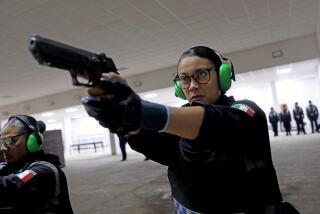China Put the Horse Before the Cart : Political, Not Economic, Reform Must Go First to Spread Around the Blame for Tough Decisions
- Share via
First we had Deng Xiaoping’s astonishing economic reforms in China in the early 1980s, in which Beijing seemed to be leading the Communist world in new directions, abandoning the failed tenets of Marxism and the centrally planned economy. Then we had Mikhail S. Gorbachev in the mid-1980s beginning his remarkable series of political reforms, most strikingly heralded by his policy of glasnost, which brought breathtaking change to the character and content of the Soviet media and public discourse.
But many astute observers of Beijing and Moscow wondered whether Gorbachev in fact had it right in placing initial emphasis on politics and openness instead of on economic reform. After all, it was cogently argued, you can’t promote divisive political reform without first placating the public by delivering the economic goods. Gorbachev has yet to deliver the economic goods to the public--in fact, things are worse than ever--as he plows ahead with the extraordinary spectacle of no-holds-barred debate within the new Soviet parliament. But we haven’t seen any shootings in Red Square yet, either.
With last weekend’s brutal and ill-conceived assault on the students and citizens in Tian An Men Square, the Chinese leadership suddenly set itself back years. The viciousness of the military’s action and the ideological vituperation within the party leadership constitute a convulsion not heard since the Cultural Revolution. Suddenly the question arises: Has Gorbachev in fact got it right by putting political reform ahead of economic reform?
The conventional wisdom may have been off the mark; perhaps it is better to allow popularly mandated bodies to endorse the hard and painful economic decisions lying ahead (Russian-style), rather than to allow the burgeoning of economic life to lead to new political demands that the party leadership (Chinese-style) is not eady to face. Perhaps it is best to let public opinion drive the reforms than to dispense it as largess from on high.
In fact, there is no sure-fire formula. Russia and China are quite different in character and historical experience. But both are struggling to get out of the same ideological straitjackets. Both political and economic reform are required as dying Communist parties negotiate the shoals towards greater public participation in the ruling process and the goal of a more truly powerful, effective nation state. Not the least of the virtues of democracy is that leaders can spread the blame around when key decisions are approved by political bodies mandated by the public. China has yet to learn that.
But what lessons do we draw from these two diverse spectacles in two cities? Does Moscow foreshadow where Beijing must inevitably go--toward political democratization? Or does Beijing foreshadow where Moscow may go--reversion to brutal military repression when the ultimate challenge to the Communist Party’s power and legitimacy becomes intolerable? Can Gorbachev point to Beijing’s violence and bloodshed as a warning to Soviet hard-liners of what might happen if reform is slowed? Or will the hard-liners point to Beijing’s bloodshed as the destiny under Gorbachev?
In the end, our own democratic heritage should lead us to believe that Moscow is on the right track--the only track, however painful--if it is to enter the modern era and develop a strong, healthy state. If the bloated bureaucracy is to be turned on its head, better to have it perceived as reflecting a true national consensus than the willful act of the nation’s top nonelected bureaucrat. If restive nationalities are going to pull the Soviet Empire apart, it’s wiser to have the process legitimated under democratic processes representing the popular will, than seen as traitorous concessions by authoritarian leaders too weak or fearful to stop the process. Moscow already seems to have grasped the centrality of genuine rule of law in a way that the Chinese, pursuing their historic Confucian quest for virtuous leadership, have not so far done.
Indeed, democracy is not a panacea, and both China and Russia face overwhelming problems daunting to any leadership. We in the West have powerful interests at stake in these remarkable transitions in both countries. We have spent nearly half a century trying to figure out how to rid the world body politic of the metastasizing spread of the unhealthy cells of ideological communist regimes. Our preferred chemotherapy is representative institutions, democratic procedure and freedom of expression. We shall see whether Moscow or Beijing can in the end traverse the dangers and truly dismantle the monstrous edifices of totalitarian, ideological, communist rule that seemed so powerful for so long. Meanwhile, our own security is involved in the process. We need to watch this tale of two cities carefully indeed--and hope that they are watching and learning from each other as well.
More to Read
Sign up for Essential California
The most important California stories and recommendations in your inbox every morning.
You may occasionally receive promotional content from the Los Angeles Times.













